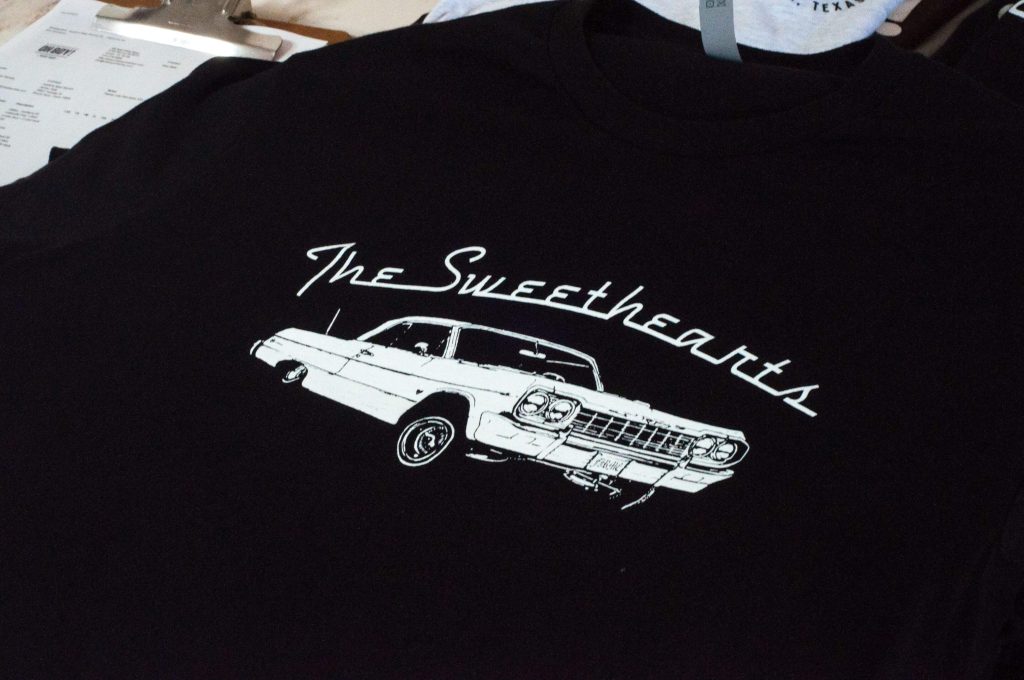
Custom apparel has become a powerful tool for businesses looking to build brand recognition and create lasting connections with their audience. The journey from initial concept to finished product involves multiple stages that require expertise, precision, and attention to detail. Quality t-shirt printing Austin companies understand that every step matters when transforming ideas into wearable designs that represent a brand’s identity.
The process begins with understanding what makes a successful custom t-shirt project. Professional T shirt printing Austin services focus on collaboration, material quality, and sustainable practices to deliver results that exceed expectations. Businesses that invest in reliable printing partners gain access to knowledge and resources that make the difference between ordinary shirts and exceptional branded apparel that people actually want to wear.
Collaborative Design Development
- Understanding Client Vision: The foundation of any successful custom t-shirt project starts with clear communication between the business and the printing partner. Design teams work closely with clients to understand brand guidelines, target audience preferences, and the specific message the apparel needs to convey. This collaborative approach ensures that artwork translates effectively from screen to fabric whilst maintaining the integrity of the original concept.
- Artwork Preparation Standards: Professional printing services handle technical aspects like colour separation, resolution optimisation, and file formatting to guarantee crisp, accurate reproduction. Experienced teams can identify potential issues before printing begins, saving businesses time and money by avoiding costly reprints. The preparation phase includes sizing adjustments, colour matching to brand specifications, and ensuring designs work effectively with the chosen printing method for optimal visual impact.
- Proof Approval Process: Before production begins, clients receive detailed proofs showing exactly how designs will appear on finished garments. This critical step allows for adjustments to placement, sizing, or colour intensity based on the actual fabric and printing technique. Businesses appreciate the opportunity to make informed decisions when they can visualise the final product rather than guessing how concepts will translate to wearable form.
Material Selection Impact
- Fabric Quality Considerations: The foundation of any great custom t-shirt lies in the quality of the base garment selected for printing. Cotton blends offer different benefits compared to pure cotton or performance fabrics, with each material type affecting how prints appear and how long they last. Businesses need to consider factors like breathability, durability, and how the fabric feels against skin when recipients wear the shirts for extended periods throughout their day.
- Print Durability Factors: Different fabrics accept ink differently, which directly impacts how well designs withstand repeated washing and regular wear. Screen printing on quality materials creates vibrant, long-lasting results that maintain their appearance even after dozens of wash cycles. The wrong fabric choice can lead to cracking, fading, or peeling that damages brand reputation when shirts look worn out after minimal use.
- Comfort and Wearability Balance: Recipients are more likely to wear custom t-shirts regularly when they feel comfortable and fit well, which means material selection directly affects marketing reach. Soft, breathable fabrics with appropriate weight for the climate encourage repeated wear, turning each shirt into an ongoing advertisement. Businesses that prioritise comfort alongside visual appeal create branded apparel that people genuinely enjoy wearing rather than shirts that end up forgotten in the back of drawers.
Sustainable Printing Practices
- Eco-Conscious Methods: Austin’s creative culture values environmental responsibility, making sustainable printing practices increasingly important for businesses connecting with local audiences. Water-based inks reduce chemical exposure whilst delivering vibrant colours that match traditional plastisol results. These methods align with consumer expectations around corporate responsibility without compromising the quality or visual impact of finished products.
- Waste Reduction Strategies: Professional printing operations implement systems to minimise material waste during production, from careful inventory management to efficient ink usage. Bulk ordering reduces per-unit environmental impact by consolidating production runs and decreasing packaging waste. Businesses benefit financially from these efficiencies through better pricing options on larger orders that also support their sustainability goals and enhance their environmental credentials.
- Long-Term Quality Benefits: Sustainable practices often correlate with higher quality standards because environmentally conscious printers typically invest in superior materials and precise processes. Shirts that last longer reduce the need for replacement orders, decreasing overall environmental impact through extended product lifecycles. This approach creates value for businesses by ensuring their branded apparel continues representing them well long after initial distribution to customers or event attendees.
Production and Quality Control
- Printing Technique Selection: Different projects require different printing methods based on design complexity, order size, and budget parameters that vary between businesses. Screen printing excels for bulk orders with solid colours, providing cost-effective results for large quantities. The right technique ensures designs appear exactly as intended whilst meeting deadline requirements without sacrificing quality standards that reflect poorly on brands.
- Quality Assurance Measures: Professional operations inspect garments at multiple stages to catch potential issues before shirts reach clients or their intended recipients. This includes checking colour accuracy, print placement consistency, and fabric quality to ensure every piece meets established standards. Businesses avoid embarrassing situations where defective or substandard shirts damage their reputation when distributed at events or to valued customers and partners.
Conclusion
Successful custom t-shirt projects depend on experienced printing partners who understand every stage from initial concept through final delivery to your door. The combination of collaborative design processes, quality material selection, and sustainable practices creates branded apparel that effectively represents businesses whilst making positive impressions on recipients. Investing in professional printing services ensures your ideas transform into wearable designs that people actually want to wear repeatedly, maximising your marketing investment.
Consider partnering with experienced local printers who understand your brand vision and can guide you through the process of creating custom apparel that truly stands out.
Leave a Reply